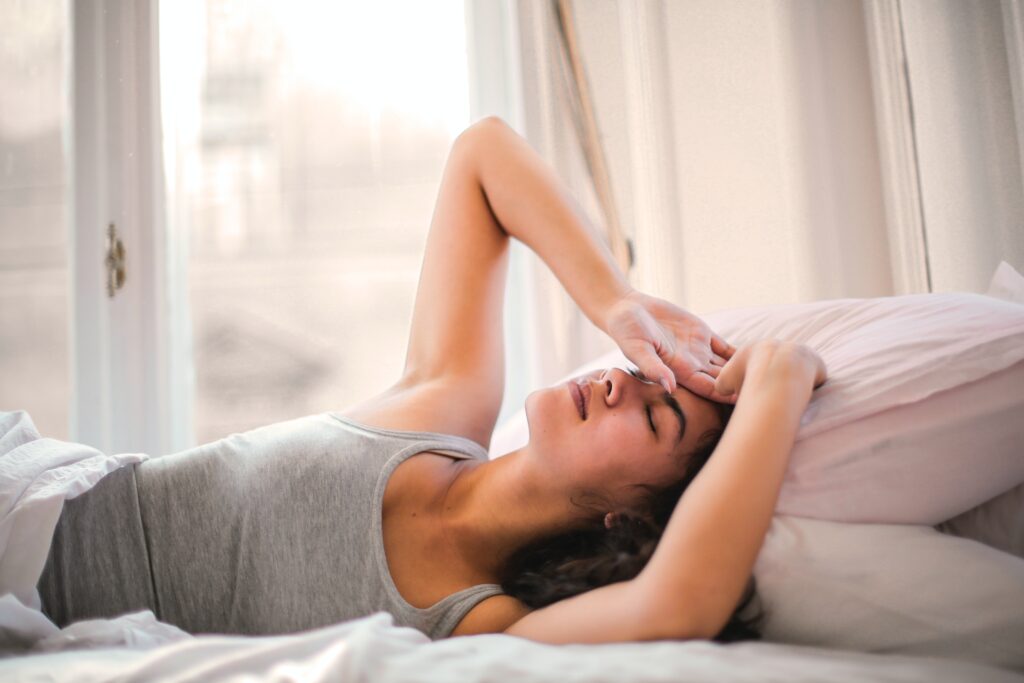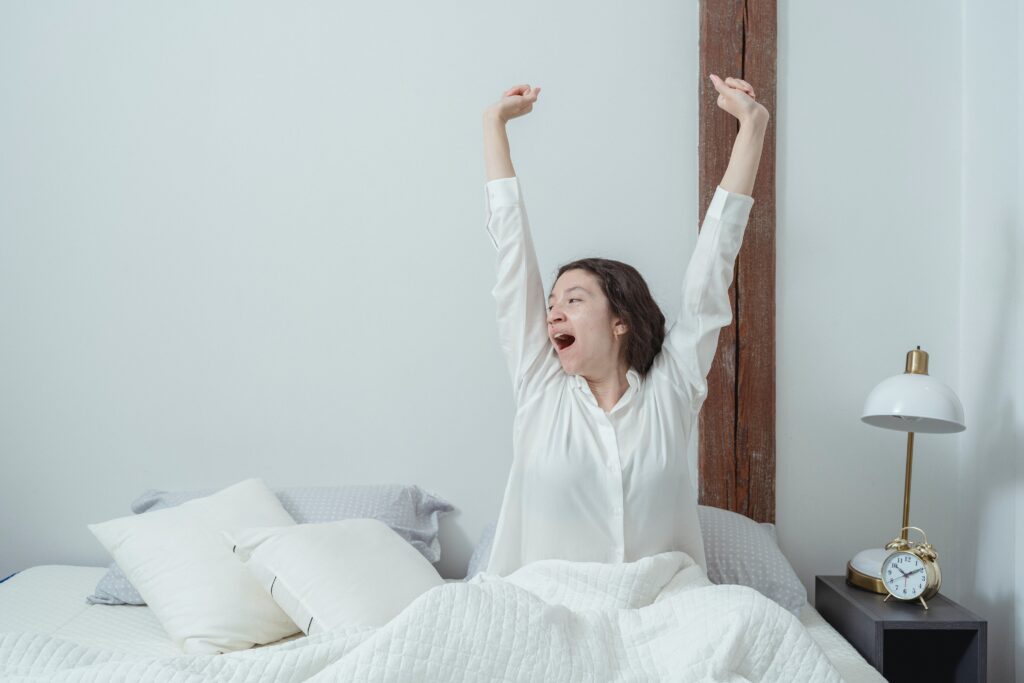How Sleeping Pattern Differs
Sleeping is one of the most blessed activities in our lives. It allows us to recharge our batteries and get a good sleep. When it comes to sleep, there are many things to consider. You should ensure you are getting enough rest and that your sleep is uninterrupted. There are many different ways to sleep, each with its benefits and drawbacks. However, not everyone gets a good sleep every night. Here are some sleeping implications and tips to help you get good sleep:
Sleeping environment
The sleeping environment is important for getting a good night’s sleep. Make sure your bedroom is cool, dark, and quiet. If you’re a light sleeper, avoid rooms with a lot of noise. If you’re a heavy sleeper, keep noise levels low in your bedroom and avoid caffeine and alcohol before bed.
Deep sleeping tips
Deep sleep is a time when your body restores itself. During deep sleep, your brain and body work together to heal and rejuvenate. Here are some tips to help you get the most out of your deep sleep:
1. Establish a regular sleep schedule.
When you establish a regular sleep schedule, your body can adjust to the new rhythm better. It helps you get the most out of deep sleep.
2. Avoid caffeine and alcohol before bed.
Caffeine and alcohol can disrupt your sleep and prevent you from getting the deep sleep you need.
3. Establish a comfortable sleep environment.
Make sure your bedroom is dark and cool and your bed is comfortable.
4. Avoid stress before bed.
Stress can keep you from falling asleep and getting the deep sleep you need.
5. Consider using a sleep aid.
Some people find that taking a sleep aid before bed or starting the day. There is a good supplement that helps to finetune the sleeping pattern.
Natural way to enhance sleep
Sleep is a crucial part of our health and well-being. Research has shown that getting enough sleep can improve our mood, reduce stress, and boost productivity. However, many people struggle to get a good night’s sleep. You can do many things to improve your sleep quality, including making sure you have a comfortable bed and environment, avoiding caffeine and alcohol before bed, and practicing relaxation techniques.
Can I sleep effectively in less time?
Although lowering the quantity of sleep you get isn’t advisable, sometimes we may not be able to get enough sleep. If we follow a few excellent practices, like increasing blood drift in our brains by doing yoga, working out, and walking, we will get deep sleep. Before bedtime, avoiding looking at monitors, drinking liquids, and ensuring the surroundings are conducive to sleep is better. Going to our mattresses soon and getting up in the morning will help us be extra productive, have successful days, and live healthily.
Follow the best sleeping pattern and direction
There are several factors to consider when determining the right direction and timing to sleep, which is based on the below :
In keeping with ancient traditions like Vastu shastra, the correct direction to sleep is the direction of the south. A few latest research likewise supports this theory. Therefore, it means that when you lie on a mattress, keep your head position pointed towards the south direction, and your feet are pointed north.
1. Age: As people age, their bodies naturally start to slow down. Thus, it takes longer for them to fall asleep and stay asleep. If you are an older adult, finding a sleep pattern that works for you and that you are comfortable with is important.
2. Gender: Men and women have different sleep needs. Men need more sleep than women do, on average. If you are a woman, finding a sleep pattern that works for you and that you are comfortable with is important.
3. Circadian rhythm: Circadian rhythm refers to the body’s natural 24-hour clock. This internal clock influences everything from our sleep patterns to our appetite.
The average person has a circadian rhythm that is roughly 24 hours. However, some people have a slightly different rhythm than the average. It can depend on a person’s genetics and even change over time.
Circadian rhythm is regulated by the hypothalamus’s suprachiasmatic nucleus (SCN). The SCN is a small but important part of the brain that controls the body’s clocks.
The SCN is located in the center of the brain and is responsible for the body’s daily activities, including producing hormones and regulating sleep and wakefulness.
The daylight and dark cycles influence the SCN. During the day, the SCN is stimulated by light. In turn, this stimulates the production of hormones, which help to keep us awake.
Best Time for Going to Sleep
The National Sleep Foundation suggests that adults must have approximately 7 to 9 hours of sleep every night. Preferably it’s better to hit the mattress early and get up early. You must go to bed before 10 pm every day and wake up earlier than 5 am. This practice would increase your motivation, plan your day better and help you perform extremely well.
Keep up your sleep schedule right
Always have a defined time for Going to bed and getting up at the same time every day, not to have a different schedule for the weekends. This consistency makes your body clock tuned to the sleep-wake cycle AM. This practice would increase your motivation, plan your day better and help you perform extremely well.
Avoid or limit your daytime sleep
Avoid long day naps. It can interfere with your night-time sleep. If you feel tired, don’t sleep beyond 1 hour during your daytime.
Don’t Sleep With An Empty Stomach
People presume that emptying their stomachs would help reduce weight, but skipping food can cause weight gain. Besides, so many other health problems could arise because of skipping meals, particularly dinner.
During sleep, our skin rests and repairs by removing toxins to make it more beautiful. During sleep, even the DNA damage caused by the environment gets cured.
Sound sleep replaces aging cells and creates new ones. But, when we cut down our sleep, dark circles develop under our eyes, making our skin dry and even it changes skin texture and wrinkles.
Develop Regular Bedtime Routine
Please Follow a few regular habits and practices before bedtime helps to get faster sleep on time. You can listen to relaxing Music, read books, take a warm bath/shower, do yoga for adequate sleep, spend time with elders/kids, and do rituals before bedtime may help you to catch quick and deep sleep.
Read books to get sleep
If you want to sleep better, read books! A study published in the journal “Sleep” found that reading before bed increases the chances of getting a good night’s sleep by up to 40%. Not only will reading help you relax and fall asleep, but it can also improve your memory and learning skills. So not only will you be getting a good night’s sleep, but you’ll also be expanding your knowledge simultaneously!
Do rituals and meditation before sleep
If you practice regular prayers or meditation, it can relax and calm your mind. There are proven results from these practices. Free content is available online.
Listening to Music to get sleep
Listening to Music before bed can help you get a good night’s sleep. Not only can Music relax you, but it can also help you to focus on sleep. Different types of Music can work for different people. If you’re struggling to get to sleep, try listening to calming or instrumental Music. Some people find that listening to Music before bed helps them to fall asleep faster. If you’re finding it hard to sleep, try listening to podcasts or audiobooks before bed. It can help you to relax and get to sleep.
Put away smartphones and tablets to get sleep
There are many benefits to getting a good night’s sleep, including better moods, increased productivity, and better memory. Getting enough sleep can even help reduce the risk of developing chronic diseases.
But like most people, you probably rely on technology to help you through the day. Smartphones and tablets are great tools but can also be a distraction when you should be winding down for the night.
If you want to get the most out of your sleep, put your electronics away and stick to a routine. Try to go to bed and wake up simultaneously every day, and avoid watching.
Don’t consume more caffeine before bedtime
There is a lot of debate on whether or not consuming caffeine before bedtime is good for you. However, experts generally agree that consuming caffeine late at night is not a good idea because it can disrupt your sleep.
The stimulant in caffeine can keep you awake and active, leading to problems such as caffeine withdrawal and decreased energy the next day. In addition, caffeine can also disrupt your natural sleep cycles, making it harder to get restful sleep.
So, what’s the verdict? Most experts suggest that you should avoid consuming caffeine before bedtime.
Don’t consume alcohol before bedtime
There are a few reasons why you should avoid consuming alcohol before bedtime. First of all, alcohol can interfere with the quality of your sleep. Secondly, alcohol can lead to risky behaviors while sleeping, like engaging in unprotected sex or driving drunk. Finally, alcohol can promote sleep problems like difficulty falling asleep and staying asleep. So, if you want a good night’s sleep, it’s best to avoid drinking alcohol before bed.
Don’t do intense exercise before bedtime
There are many talks these days about the dangers of intense exercise before bedtime. The rationale behind this advice is that we’re not meant to be working our bodies so hard during the day and that when we hit the hay, our bodies should be able to rest and recover.
There are a few things to consider when making this decision. The first is that our bodies were designed to move. Our ancestors were hunter-gatherers, and they were constantly on the move. Humans need to move our bodies to keep our muscles and joints functioning optimally.
The second consideration is that our bodies need to rest after our daylong activities; if we do any intense workout before bed, we don’t get sleep.
If you wake up during the night, avoid checking time
If you wake up during the night and don’t check the time, you may not realize how much time has passed. It is easy to become disoriented if you don’t check the time, and you may not realize how much time you slept, and you won’t get distracted.



